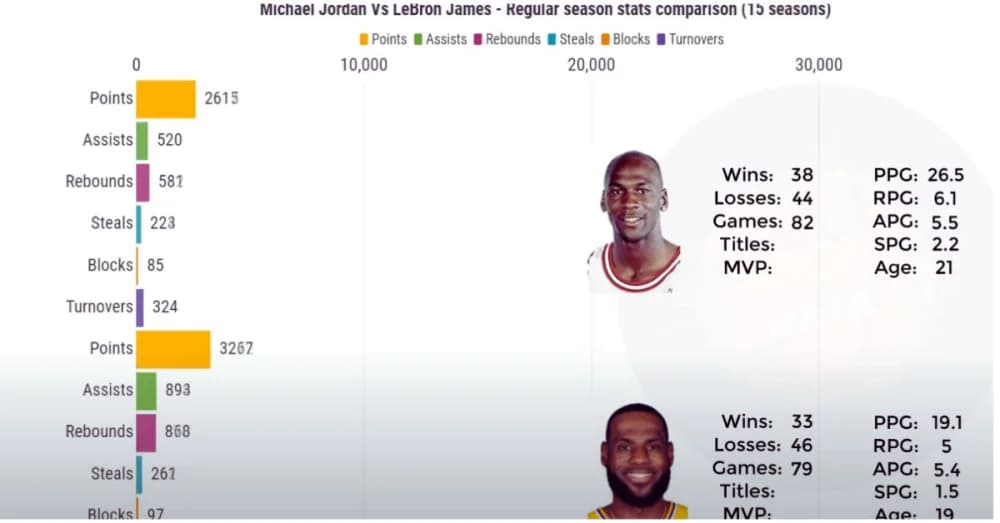Skip Bayless Reignites NBA Debate: Michael Jordan And LeBron James – Who’s the True GOAT?

The comparison between LeBron James and Michael Jordan is an age-old debate that resurfaces every time a significant milestone is achieved in the basketball world. While LeBron’s 40,000-point achievement is undeniably remarkable, it has reignited discussions about the enduring legacy of Jordan and the impact of LeBron on the modern game.
The contrasting viewpoints presented by Skip Bayless and the Boston Celtics legends underscore the complexity of assessing greatness in basketball. While statistics provide a quantitative measure of performance, the intangible qualities of impact, leadership, and longevity further complicate the GOAT debate, making it a subjective and endlessly debatable topic among fans, analysts, and former players alike.
Skip Bayless’ assertion that Michael Jordan boasts a superior career resume based on statistics and championship success aligns with traditional metrics used to evaluate greatness in basketball. Conversely, the perspective offered by Kevin Garnett and Paul Pierce highlights the transformative impact LeBron James has had on the game, transcending statistical comparisons to redefine the role of the modern NBA superstar.
LeBron James’ unprecedented longevity in the NBA, now in his 21st season, challenges conventional notions of athletic decline and retirement. His ability to maintain elite performance well into his third decade as a professional athlete not only sets a new standard for longevity but also prompts reflections on the evolving nature of athleticism and sports science in the modern era.
While statistics provide a quantifiable measure of individual performance, the broader impact of players like LeBron James extends beyond the box score. His influence on and off the court, including his activism, philanthropy, and role as a global ambassador for the sport, contribute to a multifaceted legacy that transcends mere statistical achievements.
The comparison between LeBron James and Michael Jordan reflects the evolution of basketball as a sport and cultural phenomenon. As the game continues to evolve, so too do the criteria by which greatness is assessed, challenging fans and analysts to consider the broader context of each player’s career within the ever-changing landscape of professional basketball.
The ongoing debate surrounding LeBron James and Michael Jordan encapsulates the enduring fascination with greatness in basketball. As LeBron’s 40,000-point milestone reignites discussions about his place in NBA history, it serves as a poignant reminder of the timeless allure of the GOAT debate and the enduring legacy of two of the game’s most iconic figures.





